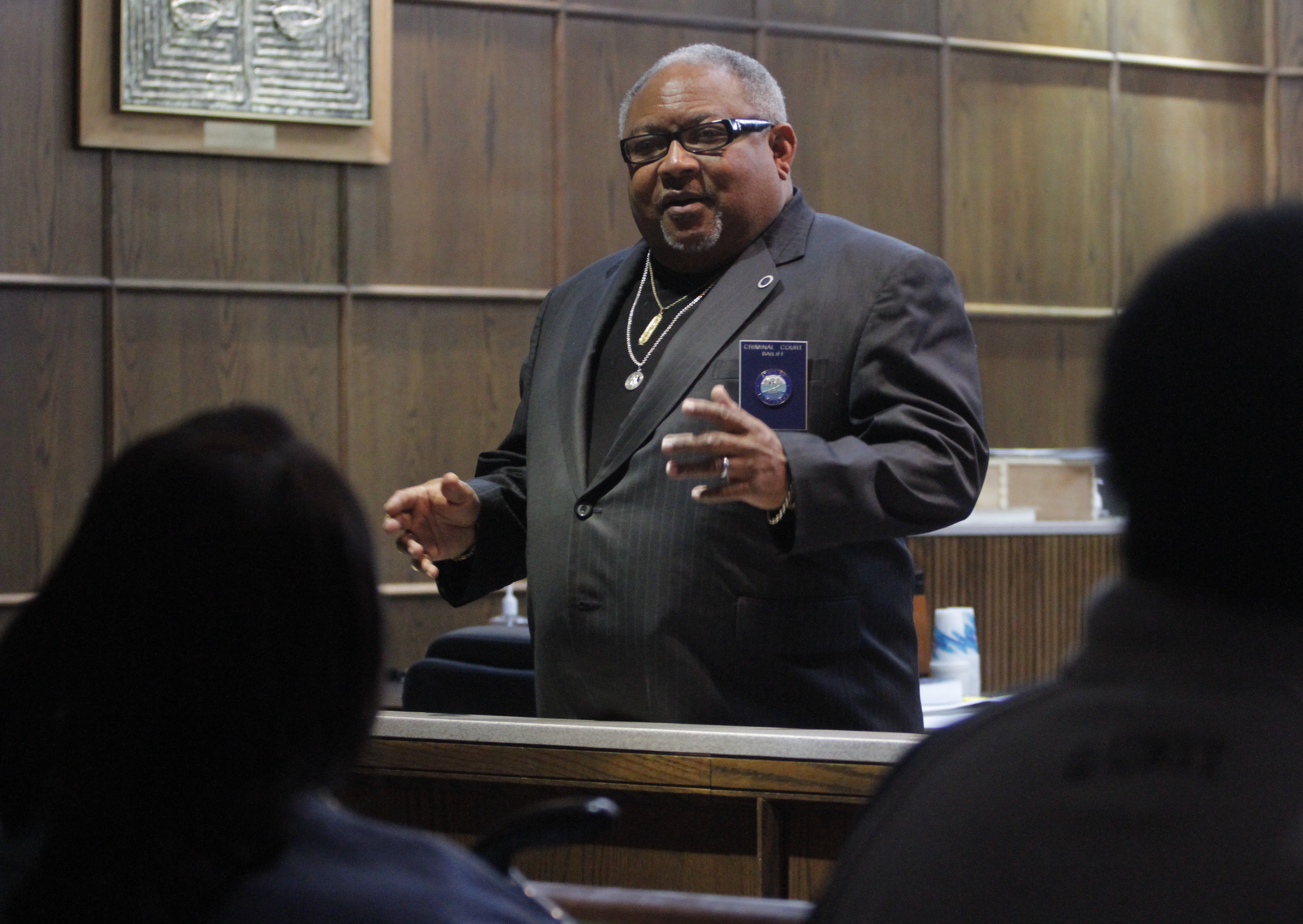They come to participate in the long process of justice.
They come with sleep in their eyes. They come in work uniforms, in sweatpants, in scandalously short skirts with blue hair and long acrylic fingernails. They come even though it's making them late for something else, and they count the minutes.
And when they find their seat on the wooden benches in Division III, bailiff Gary Bender comes to the front of the room with his morning message. He uses his hands as he talks, like he once did in a church pulpit, and he warns them. No cellphones. No talking. No laughing. No walking in front of people.
"This is criminal court," Bender says. "It's not a high school gym."
There are few places left on earth where decorum and procedure matter as much as they do in an American courtroom. Greetings must be just right and perfectly timed. The man or woman in charge wears a robe, and it's all "your honor" this and "your honor" that and "if it pleases the court."
Few take this as seriously as Bender, who, unlike most other bailiffs in the Hamilton County Courthouse, makes his plea for respect a daily ritual. He wants those in attendance to know that the way they behave could alter proceedings, that they don't have to be defined by what brought them through the doors. He wants for the short time he's with them to do more than chide people for surfing Facebook or texting friends. He wants to make an impact.
He quotes William Shakespeare and Nelson Mandela. He shares personal experiences.
"I've been betrayed, in my 60 years, twice."
Some like his extra effort. Other roll their eyes, snicker.
"My grandmother told me years ago, 'you can't raise grown folk,' so I'm not going to try."
"I've developed a saying: Experience is the best teacher."
"My mother taught me, don't walk in front of folks."
"Even though you might have fussed all week long about how you had to be in court, you're still here."
•••
At first, Bender, 61, wanted to be a policeman.
But after graduating from Middle Tennessee State University, he joined the U.S. Army and veered off course, to seminary. He pastored for 25 years in Texas, Oklahoma and Tennessee.
He started a ministry in Cleveland that invited in ex-convicts, people he says didn't fit in anywhere else because of their tattoos and pierced ears.
"They had gone to traditional churches and felt like they needed a place where they could all be accepted," Bender said.
For years he also had a second career, working on and off as a parole officer and in a federal prison. He says he saw what happened when criminals weren't supported by family, when they couldn't find a job, when the hammer of the court came down harder than they could stand.
"I saw the prisoners on the outside, and I saw the stories that they were going through, where they came from," he said.
He took the job as bailiff two years ago so he could continue to work with the marginalized and troubled. Bailiffs in Hamilton County are civilians, often retirees who swear in witnesses, read names from a docket and field questions from the assortment of people who file in each day.
Judge Don Poole says he wanted a respectful bailiff, but didn't expect Bender to take his morning introduction so seriously. He knows Bender has a background as a pastor, and he thinks people like him.
"He doesn't high-hand them or treat them poorly," Poole said.
Bender said he knows a lot of people coming to see Judge Poole will get bad news.
"We're all human, and a little smile, a little compassion, goes a long way," Bender said.
Chivalry isn't dead in Division III, said Bender.
•••
Behind Bender, lawyers in crisp suits are filing in. They open up their laptops and wheel in carts full of files. The clerk and court reporter take their seats.
"It's my desire that things go well with you today," Bender says.
On a bench near the front, Era Patterson is still listening. Court always starts at 9 a.m., Bender says. He's running out of time.
Patterson came here to support a loved one. Bender already told her that would make a difference. Judge Poole, he says, likes to see family.
Soon she'll have her chance. Later, she'll say thank you. His practical, sermon-like speech made her feel better about the day.
But first there's time for one more story. Bender starts talking about Nelson Mandela, interviewed a few weeks before he died.
"He said don't remember me for all of the accolades and the prizes that I received during my lifetime," Bender says. "I want you to remember me for the times I got knocked down and got back up."
Be the same, he says to those like Patterson. Get back up.
Contact staff writer Claire Wiseman at 423-757-6347 or cwiseman@timesfreepress.com. Follow her on Twitter @clairelwiseman.

